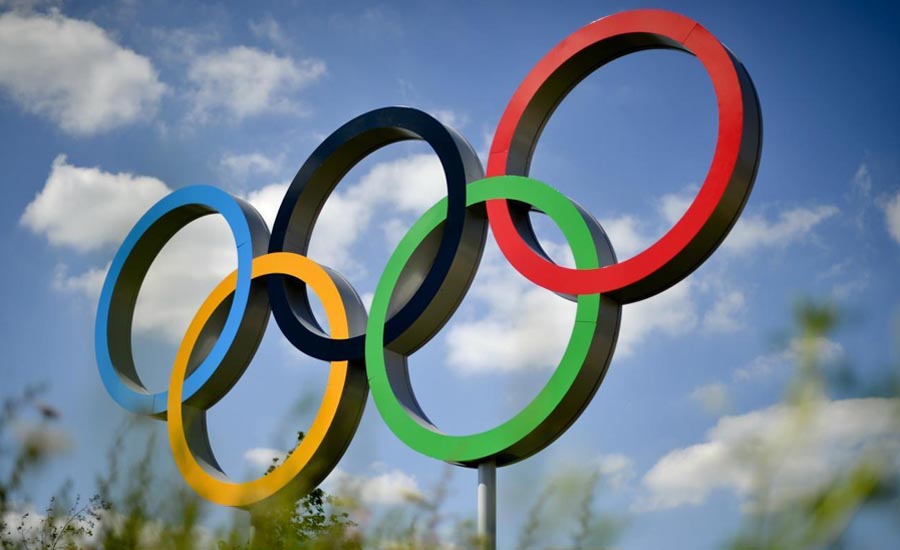By Julie Tisdale Pardi
As Olympic fever takes hold, we would like to take the opportunity to highlight research from the National Institute for Occupational Safety and Health (NIOSH) that relates directly or indirectly to the athletes or their events. NIOSH has the responsibility of conducting research and making recommendations to prevent work-related injuries and illnesses. Although Olympic competition differs from employment (defined as work performed for hire or pay), the contests often involve stresses and hazards similar to those that working men and women can encounter on the job. As we salute America’s world-class champions, we and our diverse partners have the opportunity to remind the public of the work we do to make everyday work safe for all workers.
Zika
The prevalence of Zika in Brazil has concerned many athletes. You may have heard about Zika virus in the news. Zika outbreaks are happening in many countries, including Brazil. Zika virus is primarily spread through the bites of infected mosquitoes. It can also be transmitted through sex with an infected person. These mosquitoes are aggressive daytime biters. They can also bite at night. The most common symptoms of Zika virus disease are fever, rash, joint pain, and conjunctivitis (red eyes). However, many people infected with Zika virus won’t have symptoms or will only have mild symptoms. Additionally, Zika can be passed from a pregnant woman to her fetus, and infection during pregnancy can cause certain birth defects such as microcephaly. Workers at the Olympics conducting outdoor activities may be at the greatest risk of exposure to Zika virus. There is no vaccine to prevent Zika virus infection, and there is no specific treatment for people who become infected.
The US Centers for Disease Control and Prevention (CDC) recommends Olympians and all Olympic workers, including volunteers, take the actions listed below while in Rio. For more information on how Olympians and all Olympic workers, including volunteers, can protect themselves in Rio, visit the NIOSH Zika topic page, the CDC Zika website, and the CDC travel notice for the 2016 Summer Olympics in Rio.
- Use insect repellents with an Environmental Protection Agency (EPA)-registered active ingredient, such as: DEET, picaridin, IR3535, or oil of lemon eucalyptus or para-menthane-diol to prevent mosquito bites.
- Get rid of sources of standing water (for example, buckets, cans, bottles, barrels) whenever possible to reduce or eliminate areas where mosquitoes can lay eggs.
- Even in warm weather, wear lightweight, loose fitting clothing that covers hands, arms, legs, and other exposed skin as much as possible.
- Protect yourself and others during sex. Both men and women can transmit Zika sexually, even if they don’t have symptoms.
- If you have symptoms of Zika, seek medical attention promptly. If you have left Rio, be sure to tell your healthcare provider where you have recently traveled.
Circadian Rhythms/Work Life Balance
As the athletes travel across time zones, it is important that ample time is allowed for their bodies to adjust to the time change. NIOSH offered suggestions for employers to help workers adjust to the Daylight Saving times change in a recent blog. Changes in the body’s circadian rhythms is addressed in NIOSH research on shift work and long hours. See the blog, A Hard Day’s Night: Training Provides Nurses with Strategies for Shift Work and Long Work Hours. Workers face issues related to meeting the demands of work, maintaining their health, and responding to needs outside of work that have a direct effect on their overall safety, health, and well-being. Similarly, Olympic athletes may need to balance work, training, and family obligations as well as the stress of competing at the Olympic level. Support for plenty of rest should be given to the athletes as they juggle these demands and transition across time zones. In the workplace, employers should consider these needs concurrently and modify work practices to reduce fatigue and promote work-life balance. See the NIOSH Total Worker Health® and Work Organization and Stress-Related Disorders websites for more information.
Heat Stress
Regardless of the venue, the summer Olympics typically have one thing in common – the heat. Athletes must take precautions to prevent heat-related illness. Workers at risk of heat stress include outdoor workers and workers in hot environments such as firefighters, bakery workers, farmers, construction workers, miners, boiler room workers, factory workers, and others. For information on preventing heat-related illness, see the NIOSH Heat Stress topic page.
Click here to read the rest of the blog post, which includes eye injuries, concussions and sexual dysfunction among cyclists.

